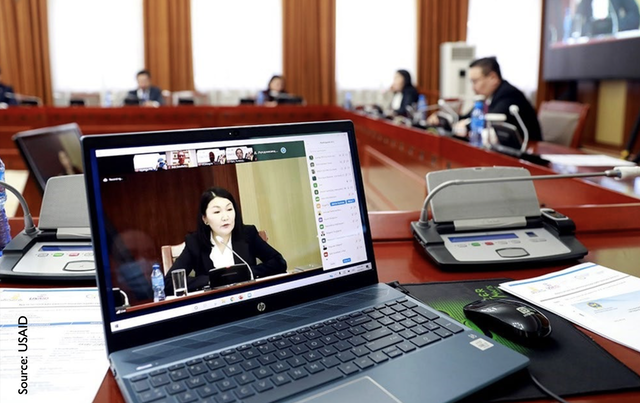
Why Governments Deploy ICT4D Projects
Governments use digital services to increase constituent services by improving efficiency, communication, accessibility, transparency, decision-making, and innovation. This strategic integration of e-Government technology helps governments enhance their operations and better serve their constituents.
Governments use e-government programs and digital services to increase constituent services for several reasons:
- Improved efficiency and productivity: E-government programs can streamline administrative processes, reduce paperwork, and save time and money, ultimately leading to more efficient and productive government operations.
- Better communication and accessibility: E-government programs facilitate better communication between governments and citizens, creating a more open market and a stronger economy. By digitizing government services and information, e-government can increase accessibility to public services and improve the overall customer experience.
- Increased transparency and accountability: E-government can improve government transparency by allowing the public to be informed about what the government is doing. This creates a more informed and engaged citizenry, which can lead to increased trust in government.
- Enhanced decision-making and resource allocation: By leveraging data and information collected through e-government programs, governments can make more informed decisions and allocate resources more effectively, resulting in better program outcomes and better support for constituents.
- Improved constituent experience: E-government programs can provide personalized experiences to constituents by collecting, unifying, and activating data to draw meaningful insights and provide proactive solutions to their needs.
- Promotion of innovation and collaboration: By utilizing e-government programs, governments can foster collaboration and promote innovation among stakeholders, leading to the development of more innovative and sustainable solutions.
9 Approaches for Artificial Intelligence Government Regulations
Since 2016, over thirty countries have passed laws explicitly mentioning Artificial Intelligence, and in 2025, the discussion about AI bills in legislative bodies...
Is Digital Sovereignty Good for Digital Development or Is It Damaging Digital Protectionism?
We often champion local ownership and sustainable solutions in digital development. But when it comes to digital sovereignty, we need to take a careful look at...
Financial Collapse is Forcing Radical United Nations Restructuring
Executive Summary:
Compounded Crisis: Massive US foreign aid terminations (~79 million people affected per OCHA) have drastically worsened a pre-existing, severe...
Current Trends and Future Prospects of GenAI in the Public Sector
The public sector is traditionally viewed as a laggard when it comes to adopting cutting-edge technologies. However, a recent comprehensive survey by Oliver...
Can Artificial Intelligence Improve Digital Public Infrastructure Solutions?
Technology can transform our ability to help those in need. The convergence of artificial intelligence and digital public infrastructure (DPI) represents one of...
How African Governments Can Create Effective Artificial Intelligence Policies
As artificial intelligence technologies rapidly advance globally, African governments are beginning to develop national AI strategies and policies. However, they...
3 Examples of Inclusive Digital Transformation in LMIC Government Services
Digital transformation is often hailed as a game-changer for efficiency and innovation in both public and private sectors. However, in many developing countries,...
Why the Artificial Intelligence Cold War Matters for Digital Development Practitioners
The “AI Cold War” refers to a geopolitical narrative describing the technological and strategic rivalry between major powers, primarily the United States...
An Obituary for USAID: an Icon of Global Development
USAID passed away this weekend from Administration causes.
It is with a heavy heart that we acknowledge the passing of USAID, an institution that once stood as...
We Have a Playbook for International Resilience and Resistance
International development is in crisis. Not a crisis of talent or passion or expertise (those we have in abundance); we are in a crisis for our humanity. The State...











